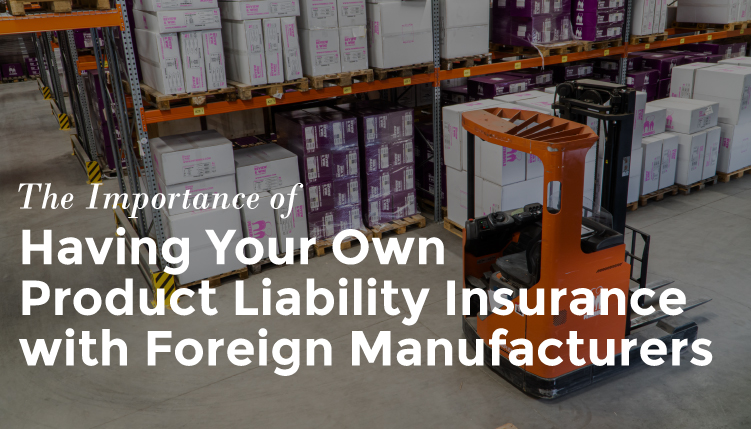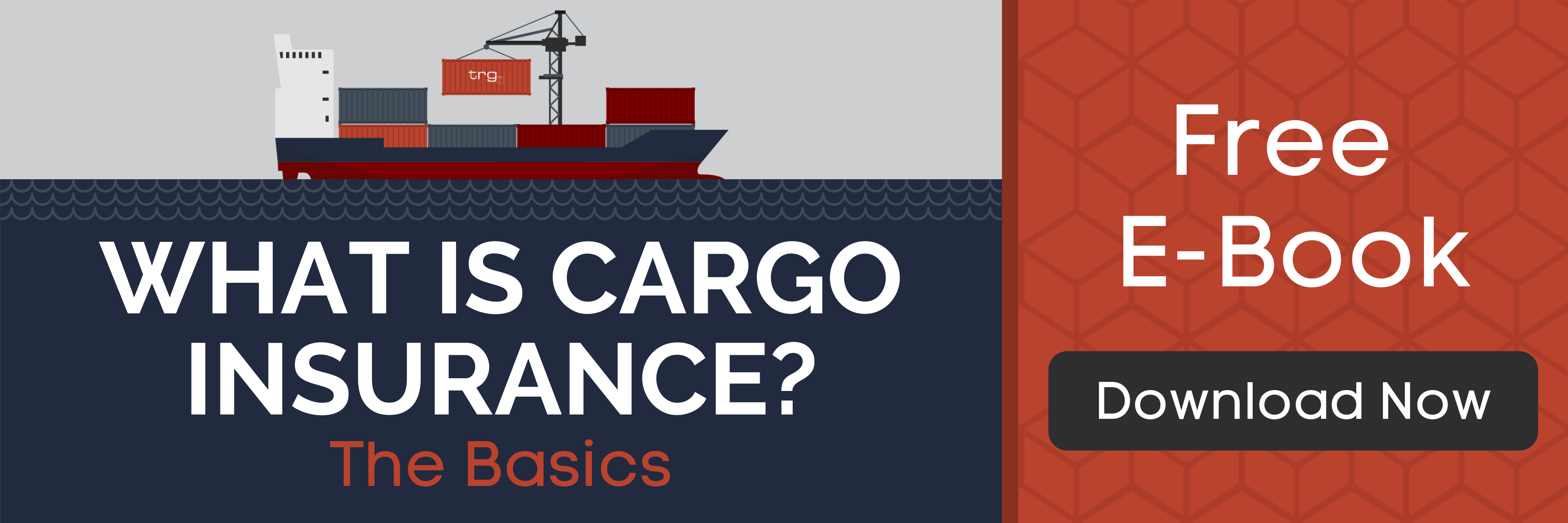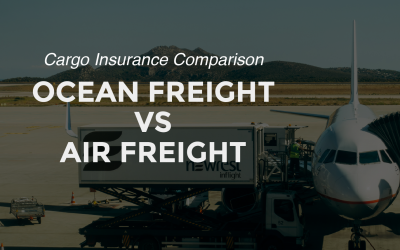The process of importing goods into the United States open a business up to an additional amount of risk. While it is important to understand and prepare for that risk, a company needs to continue to consider the risk accrued once they begin selling those goods within the domestic market. And for any company doing business in the United States, the elephant in the room when it comes to risk is product liability.
Product liability refers to the responsibility manufacturers, distributors, suppliers, retailers, and others who make products available to the public have for the injuries those products cause. Having an overall understanding of your product liability is the first step, but the second step is coming to terms with how this liability relates to your oversees manufacturer/distributor.
The Importance of Having Your Own Product Liability Insurance
The reality of the doing business is that risk will always be present. Therefore the only way to truly protect your business is with a comprehensive product liability insurance policy.
Many times importers will rely on the product liability policy that there distributor has in place. But in the event of a lawsuit, it is highly unlikely that policy will cover your domestic business.
Companies involved in a product liability court case are often surprised by the product characteristics courts identify as defects and hold them responsible for. Many times these defects pop up somewhere else in the distribution chain. Ultimately, it is your company’s responsibility to ensure the safety of the product(s) being sold to the public.
The following are a couple of the first questions a lawyer will ask when a lawsuit arises:
- Did you just go with what your foreign supplier was telling you about the safety of the product or did you test it yourself? Describe each and every product test you conducted.
- What exactly did you do to make sure the product you were getting from oversees conformed to your contract and to applicable U.S. product safety regulations?
- How did you choose your product supplier in the first place? What sort of due diligence did you do on that supplier?
- Can you show the provisions in your contract relating to product quality and safety? What product specifications did you require of your manufacturer? Is this in your contract with them? Where?
These questions illustrate how the responsibility is on the domestic seller to make sure the product is safe for the end-users. Even if the supplier is found to be the cause of the issue, the domestic seller will need to prove that they have taken ever measure possible to ensure safety.
This is why it is best practice for a company to secure their own product liability insurance to protect themselves. Relying on the coverage your supplier has secured is in place to protect them and may leave your company open to paying heavy fines in the event of a lawsuit.
Reducing Your Product Liability with Overseas Manufacturing
One of the most important questions to ask when considering your product liability is “What can I do to reduce risk?”. While insurance is ultimately the only way to protect your business when a lawsuit arises, there are some things you can and should consider from the very beginning of the product sourcing process:
- Know Your Foreign Suppliers
This one may seem like a no-brainer, but it always bears repeating: You should always conduct your due diligence when selecting a supplier. Suppliers come in every shape and form, from superb to criminally negligent. Therefore, you must thoroughly check out your product suppliers in advance. - Take Control of Quality Control
It is extremely important that take full responsibility for quality control. Most of the time consumer products arrive in the U.S. already packaged for retail sale. This makes inspection of the goods once they arrive difficult and cost-ineffective. Therefore, you should institute a valid inspection system in the country in which your products are being made to validate the safety and quality of your product. - Establishing a History
As you continue to import and source goods internationally, you will begin to establish a history with the suppliers you use. Pay close attention to that history. If one of your suppliers has been unreliable while others have been great, cut the unreliable supplier and find a new source. Perhaps the great supplier you are working with can also provide the product the unreliable one has been providing. - Have Binding Contracts in Place
Your contracts with your foreign suppliers should include a focus on safety and quality control issues. Your contract needs be clear and specific when outlining quality and safety expectations. It should also clearly state your right to inspect the products and outline the responsibility for injuries and recalls. Using just Purchase Orders will not cut it. - Align Your Marketing Efforts
It might seem harmless to state that your product is the best there is, but making statements in a piece of marketing without substantiation can be used against your company in the court of law. Make sure you are not making claims about your product you cannot back up. - Securing Product Liability Insurance
While insurance does not replace these other methods of protection, it can be the backup that you need if a situation arises. Make sure that you secure a policy that fits your specific situation and are working with an agent that considers the full scope of your company’s risk.
Need to secure product liability insurance? Talk to a TRG Risk Advisor to assess and reduce your company’s level of risk.







![[Webinar] The Risks of International Shipping & How to Protect Yourself](https://traderiskguaranty.com/trgpeak/wp-content/uploads/2022/07/2022.07_ExplosiveShipping-TitleSlide-400x250.jpg)